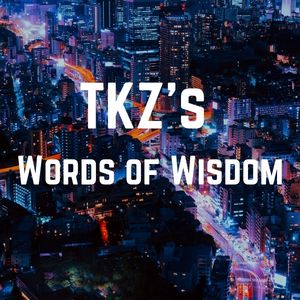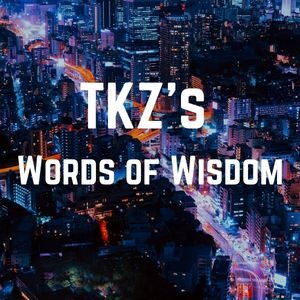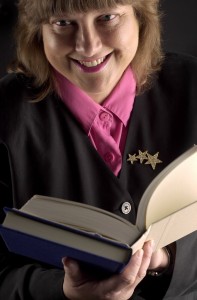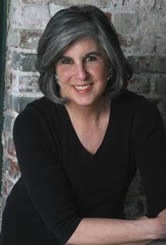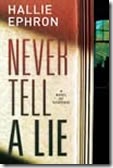I made my first sales as a flash fiction writer in 2009-11. A number of my stories appeared at Every Day Fiction, and that magazine provided my first experience in having my fiction reviewed. Readers could give a story a star rating, as well as comment on it, and sometimes those comments ended up being micro-reviews. Since then, like other published authors, my books have varying numbers of online reviews at the various online book stores and at Goodreads. Each author ends up having to decide how to deal with reviews of their books—ignore, read only the good ones, read all of them, and what, if anything, to take away from those reviews.
Today’s Words of Wisdom provides three insightful takes on reviews. Joe Moore lays out the three types of reviews, Laura Benedict reasons for motivations for reading your reviews, and Clare Langley-Hawthorne shares a useful way to categorize your reviews. Each excerpt is date-linked to the original post, and all are worth reading in their entirety.

No book has ever been declared great by everyone who read it. There will always be those who dislike a book for more reasons that we can count. As a matter of fact, it never ceases to amaze me the vast span of reactions to books including my own and those of my friends. Pick any bestseller and you’ll find someone who loves it and someone else who doesn’t. And often both are willing to say so, in the strongest of terms. There are more than enough good, bad and ugly reviews to go around.
So I thought that instead of talking about online reviews, I’d share some of mine with you. I’ve listed 5 of my thrillers (all co-written with Lynn Sholes) and a sample of the good, the bad and the ugly online reviews we’ve received over the years.
Disclaimer: I have no idea who wrote and posted these nor have I ever paid for a review. These samples were gathered from Amazon and Goodreads.
THE PHOENIX APOSTLES
The Good: “I’ll read anything these two authors write. I have to be careful not to put a spoiler in this review, but there is one scene that knocked me off the sofa. I don’t often squeal during a movie scene when the bad guy comes out from around the dark corner, but there was a scene in this book that made me jump and I almost flung the book across the room. I won’t tell which one it was because I don’t want to ruin it for any other reader.”
The Bad: “I just couldn’t figure out if this book was for “young adult” reading or “teen reading” or adults or Christian reading or even anti-religion.”
The Ugly: “The writing is deplorable, the style so bland I had to read a page twice to make sure it was indeed that bad!”
THE GRAIL CONSPIRACY
The Good: “What I want to know is when is this going to come out as a movie? It has to be one of the most exciting thrillers I have ever read. I was hooked from the first page on when Cotten Stone (the main character) stumbles onto the dig site of the Crusader’s tomb.”
The Bad: “This started with interesting characters and action, but the quality of writing was fair and the story went downhill. Would not recommend even as a beach book.”
The Ugly: “The book was simply boring and poorly written. The characters had no depth. The plot took forever to go anywhere.”
THE LAST SECRET
The Good: “This was one of those books you cannot put down. Basically I was on the edge of my seat so to speak whilst reading it. Exciting, mysterious. Well written, keeps you guessing. Loved it… Would recommend as great reading!”
The Bad: “It takes more than an exotic location and some perceived struggle between good and evil to make a good story.”
The Ugly: “Religious hype … I was totally disappointed.”
Joe Moore—September 5, 2012
Whenever I’m tempted to read reviews of my work, I keep in mind what my very first writing teacher told me: “You don’t get to look over your reader’s shoulder and explain your work. It is what it is.” That’s it. It’s out on paper or online (or shared with your workshop or writing group or significant other) and it must stand on its own. Sometimes it’s going to wobble, and sometimes someone is going to point out where you screwed up. That’s the way of sending work out into the world. The sending out has to be its own reward because there are no guarantees once it’s done.
If you’re not one of the stalwart writers who can confidently take anything a reviewer throws at you, pause a moment before you sit down to read your reviews at Goodreads or Amazon or anywhere else and ask yourself a few questions:
—Am I looking for approbation? If so, then go ask your mom or spouse or bff what they think of your work, because while you might find some solace in reviews, you’re going to find a lot of other things that are nothing like approbation.
—Am I being tempted to look at reviews by my overbearing inner critic? This is your own resistance trying to keep you from your work. Your inner critic will skim over all the nice things it reads and zero in on the negative comments. These are the ones that will stay with you when you sit down to write.
—Am I willing to give equal weight to both the negative and positive reviews? This is related to the inner critic question. If you believe all the bad stuff, then you might as well believe all the good stuff, too. And vice versa.
—Is there critical information that will help me become a better writer? This is a tricky one. Sure, there may be some clues in there, but if your goal truly is to become a better writer, then find a good editor and pay them to tell you what needs to change. Good editors rarely spend their time giving away their advice for free in reviews.
—If I read my reviews, am I likely to be motivated to put my backside in the chair and write my thousand words today when I’m done? For me, this answer is always a resounding no. Your experience may be different. If someone writes to me and tells me how much they like my work, I sail away to my keyboard on Cloud Nine, but I’ve never felt that way after reading a review. And reading negative reviews can knock me off my schedule for days. Sometimes weeks.
My relationship with reviews has evolved significantly over the past decade. At the beginning I approached even Amazon reviews with reverence and fear. My attitude was funny given that I reviewed for a newspaper for ten years. I knew how subjective reviews were. Much depends on the reviewer’s workload, tastes, and expectations. But I couldn’t get past the kid waving the potholder for several years. I wanted everyone to love my work! And if they didn’t, I spent a lot of time worrying that there was something wrong with it.
I can’t pinpoint when I changed. Somewhere along the line I stopped having expectations of the people who—often very kindly—bothered to take the time to write down what they liked, or didn’t like, about my work. I turned my concentration to my characters, making them more human, even occasionally sympathetic. That was what I could control. Now, months can go by and I don’t even know about new reviews that have gone up.
Laura Benedict—August 10, 2016
An article in the New York Times last week got me thinking (again) about reviews (hey, I bet most authors have a small part of their brain devoted to the ever-present background angst about past or future reviews/criticism of their work). The article (which you can find clicking on this link) is an interview with the author Curtis Sittenfield on the thorny issue of how professional authors handle criticism.
Now we’ve all heard of the unfortunate instances where authors have directly responded to negative reviews or criticism – usually through an ill-advised rant on twitter or a hot-headed response on Goodreads or Amazon. If you’ve forgotten or unsure of what some authors have stooped to doing, I recommend reading some of The Guardian’s book blog posts on the matter (see: how not to handle reviews; how not to respond to a bad review for example).
Curtis Sittenfield provides a useful quadrant tool that many authors could use. Basically she divides up reviews into four quadrants: smart and positive (definitely read!); smart and negative (still read); dumb and positive (read for the ego’s sake); and dumb and negative (do not read!). Many authors get into the greatest hot-water when they allow themselves to get embroiled in a debate over what they consider to be ‘dumb and negative’ reviews. Now, maybe it’s too hard to resist the temptation to read these kind of reviews but it’s up to every professional author worth their salt to resist the temptation to respond to them. You just can’t take it all so personally (being a professional writer means recognizing this is a business after all). As Curtis Sittenfield notes: ” I literally don’t think I’ve ever read a letter from a writer complaining about his or her negative review that made the writer look good. You’re better off just biting your tongue.”
Too true!
But, as Curtis goes on to point out, there are many instances in which harsh criticism can identify a real weakness in a book or an author’s approach to their material that, while humiliating, can all be part of the process of learning to be a better writer. Even in these instances though, the best response from a writer is no response at all. For Curtis, her nightmare reviewer is one who has an agenda that precludes them from responding sincerely to the book – and I think this is (again) where many authors come unstuck. There’s a lot of mean people on the internet who have their own agenda when it comes to reviewing a book or adding comments on a thread regarding someone’s work. Sometimes they are angry and bitter, sometimes they may be jealous, sometimes they want to indulge in a personal attack just for the hell of it (some are just plain trolls after all). But there can be nothing gained from responding to a scathing comment or a harsh review regardless of the reviewer’s real (or imagined) motive. Anyone who’s been on Facebook or other social media recently can attest to the fact that you are never going to change someone’s mind through an ill-advised post, comment or flamewar!
Clare Langley-Hawthorne—August 29, 2016
***
There you have it: the good, the bad and the ugly of reviews; reading reviews; handling reviews.
- How do you categorize reviews?
- Do you ever read your reviews? If so, do you read all of them? Do you have someone else screen your reviews and only share certain ones with you?
- Do you learn anything from reading your reviews?

